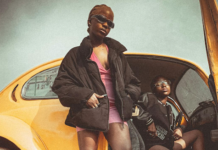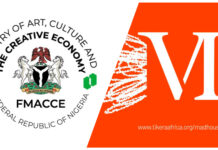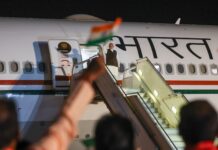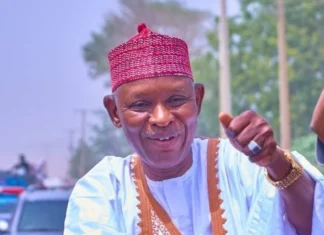Francis Ogwo
There seems to be a growing case of residents of South Africa hunting their wildlife reserves in a bid to survive even as tourism remains halted in the country due to the COVID-19 outbreak.
According to an AFP account, a settlement in Pretoria, South Africa was reported seen with bags of food after a distribution exercise organised by charitable organisations. This is due to a growing demand for food donations in the country since the lockdown to contain the virus began in March.
Report had it that the charity pick-up truck rolled into a rural South African township laden with the usual boxes of bread loaves and assorted vegetables and an unusual and especially prized gift: more than 50kg of fresh antelope meat
The antelope was said to have been shot a few days before by game farmers whose tourist lodges were closed down when the lockdown began.
A township dweller whose name was simply given as Tebogo Mabunda said “I can’t remember the last time I bought meat,” while clutching a bag of dark red venison cuts and a small sack of potatoes.
The tourism industry had abruptly halted and Mabunda has been unable to find the odd jobs in nearby lodges and spas that usually allow the town’s thousands of informal workers to scrape by.
With huge family responsibilities including four mouths to feed, the 40-year-old woman admitted she could now barely afford soap, and maize flour, a staple in South Africa.
“When I get a little bit of money I buy potatoes and tomatoes,” said single mother Sarah Baloyi, who lives in a corrugated iron shack with her toddler.
“But unfortunately I can’t even get that because there is no work.”
The creepy town has been faced with growing demands for food donations, local supermarket owner Piet started processing culled wild animals in his butchery for those in need.
“Previously, farmers donated excess potatoes to us,” he explained. “One day I went culling animals with a couple of farmers and thought, what will you do with it?”
Piet has since asked several lodges in the area to donate their animal carcasses to his store.
Through a network of charities, they have distributed more than 1.5 tons of venison to the community over the past two months.
“In times like these, receiving a decent protein goes a long way,” Piet said. “It breaks the habit of eating bread every day.”
Another hunter, Pat, cocked his rifle and hit an impala ram straight between the eyes, knocking the animal dead to the ground.
“Nice shot,” said his father, Conrad, who drove up the twitching body as the sun rose over a cluster of acacia trees.
Pat lit up a cigarette and looked out at the family’s 200ha property, where tourists can take a break from the city and admire wild animals from their chalet windows.
With all reservations cancelled through to August, Conrad decided to cull 100 antelope to help feed the township – more than double the usual amount.
“Just after lockdown started, problems immediately surfaced next door,” Conrad said, adding that animals on the neighbouring farm were being poached for food.
“It’s plain hunger,” he explained. “The township was already on knife’s edge… What happened with coronavirus is just pushing it over the top.”
Only four of 33 employees were still working on the farm, mainly to patrol the property and check fences for breaches – a precaution that was stepped up due to increased poaching under lockdown.
While Conrad has continued to pay all his workers, he admitted lay-offs were “in the pipeline”.
“We are very hard hit,” he said. “Our turnover is virtually zero.”
South Africa’s domestic tourism season is so far only expected to reopen in December. International travellers may have to wait until 2021.
The country has the highest number of confirmed coronavirus cases in Africa, with 25,937 infections and 552 fatalities recorded to date.
“It’s a poor town, our economy is broken… and there is a need for food,” said Piet, as reduced supermarket staff sorted through a batch of fruit and vegetable donations.
“Our main source of income is tourism… and now there is nothing across board.”
Back at the lodge, Pat noted that the only upside to the absence of tourists was more leeway for animal culling.
“Guests don’t appreciate shooting,” he said. “Normally we are sneaky… but now we can do it more openly.”
South Africa’s lockdown has also coincided with the start of the hunting season, causing the value of animals to plummet as farmers seek to get rid of surplus that would normally be shot.
The auction price of a live impala has halved to 1,500 rand (US$85/RM365), while venison has dropped from 30 rand to 15 rand per kg (from RM7.70 to RM3.90 per kg).
Piet hoped the plunging prices would prompt hunting farms to donate surplus rather than sell.
But their response has been mixed and most of the venison he receives has come from smaller family-run lodges rather than larger ones.
“Animals are a livelihood that they are sacrificing,” he shrugged. “They need to remain economically viable.”
Reports say despite efforts to scale up the venison scheme, Piet and his charity partners have sought to avoid the attention of local authorities.
Several incidents of corruption have been reported across South Africa since the start of the lockdown, with government officials allegedly hoarding food parcels for personal and political use.
“Corruption in the government is very easy,” said charity worker Majozy, who distributes donations collected by Piet’s supermarket.
“They register people and say they are going to get food (but) by the time they have to deliver we don’t see much happening.”
Several township residents said they had not yet received food parcels from local councillors.
Provincial government spokesman, Witness Tiva, said measures had been taken to exclude councillors from food distribution and eliminate delays.
“The government should be looking after the people,” resident Eva Ngobeni complained. “(Without the supermarket) we would be starving to death.”
Piet also added that he had already been approached by party officials seeking to take over the meat distribution scheme for “political posturing”.
“Why should I allow it?” he asked. “The more people involved, the more pilferage there will be.”
Conrad echoed this concern, preferring to remain “low-key”.
“We don’t need the publicity,” he said. “If you go public, you will get problems.”
The experience in South Africa may not be different from other countries around Africa and the world who rely on their wildlife reserves as tourists attraction. With the growing hunger and economic downturn globally since the lockdown, experts are wondering if there won’t be a sizeable depletion of fauna in desperate moves for survival just as the case in Pretoria.
Source: AFP











